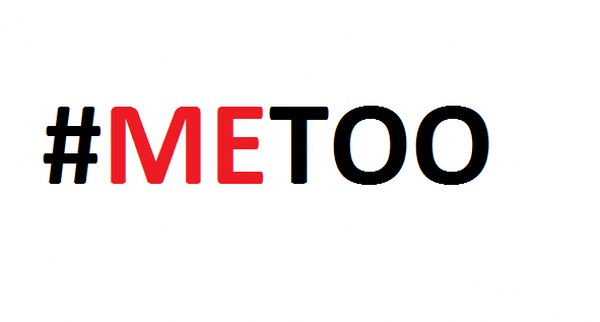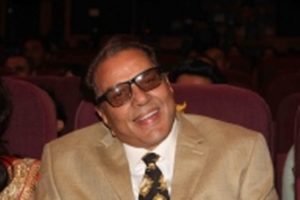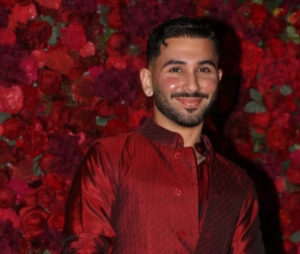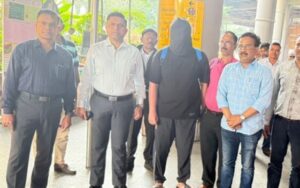#MeToo discussion: All quiet on the IFFI front

Panaji : India’s #MeToo movement has been a raging point of discussion at most film-related red carpet events, press conferences and festivals. But not at the ongoing 49th International Film Festival of India.
IFFI was “not designed that way”, a top Ministry of Information and Broadcasting official, said in its defence.
Filmmaker Subhash Ghai, who has been accused by two women of sexual violation and harassment — both of which he has denied — continues to be on the steering committee of IFFI, and in fact, occupied a prominent seat at the ongoing edition’s opening ceremony.
He was also a part of the inauguration of a multimedia exhibition ‘The Mahatma On Celluloid’ along with Minister of Information and Broadcasting Rajyavardhan Singh Rathore.
This was a far cry from last month’s Jio MAMI Mumbai Film Festival with Star, where there were not just heated discussions on the importance of women’s safety at the workplace but also exclusion of projects involving those who were directly or indirectly named in the #MeToo wave.
There were expectations that IFFI would take a stand on #MeToo or at least have some mention or discussion.
Asked about it, Amit Khare, Secretary, Ministry of Information and Broadcasting, told IANS here: “I don’t think that was the platform… I mean, IFFI was not designed that way. But definitely, as you have seen the Minister of Women and Child, she has taken a very strong stand and in fact, even in Prasar Bharati, we have taken a strong action…. even in AIR, where artistes were involved, we have taken action.”
Khare was referring to Union Women and Child Development Minister Maneka Gandhi’s request to Information and Broadcasting Minister Rajyavardhan Singh Rathore to step in and conduct a probe on the sexual harassment cases in All India Radio (AIR). This was in response to reports that the women working as casual announcers in AIR’s stations are being sexually harassed.
But the apathy was quite evident at the ongoing IFFI, when filmmaker Vinod Ganatra, head of the fest’s Indian Panaroma Non-Feature jury, termed #MeToo campaign a fad aimed at attracting publicity and getting mileage.
“It is a fad which has come with time. It is a chance to get publicity and mileage. It will not last. What is authentic will last. What is not authentic will disappear. There are people who encourage it,” Ganatra told the media here.
Writer-filmmaker Vinta Nanda, who accused actor Alok Nath of sexually violating her, believes every platform that is available to the entertainment industry should be open for discussion on issues related to the safety of women in the workplace and the #MeToo movement that rages globally.
“There wasn’t a single awards function or entertainment industry event in the whole world in the last one year where #MeToo did not become core to the discourse. That’s how seriously the movement has been accepted by the rest of the world.
“It’s sad that the respected Secretary I&B thinks that IFFI is not a platform to talk about the safety and inclusion of women in the industry. The #MeToo movement cannot be wished away as many people who are still in denial about women’s empowerment are imagining. These words spoken by the respected Secretary, if they are true, are regrettable. I don’t think that he could’ve meant it to be as it sounds,” Nanda told IANS via social media.
Film producer Siddharth Roy Kapur, President of the Producers Guild of India, took cognisance of the number of voices from the entertainment industry as part of the #MeToo movement and instructed Indian film production houses to implement and enforce the ‘The Sexual Harassment of Women at Workplace (Prevention, Prohibition and Redressal) Act 2013.
Asked about the importance of a significant platform like IFFI ignoring the movement, Kapur told IANS: “It is really at the discretion of individual festivals. These festivals are a celebration of cinema, and the idea is really to watch great cinema from around the world,” he said.
“I am not sure that there needs to be another leg to it, specifically discussing topics like this. But I think there’s a heightened awareness of it within the entertainment industry for sure,” he added.
Kapur believes it is important to let the law take its course, and to let the systems that have been set up to deal with this, play themselves out.
“I don’t think there should be knee-jerk reactions,” he said, adding that everybody has to take a call as far as including or excluding an ‘accused’ is concerned.
Filmmaker Madhur Bhandarkar, who has touched upon issues of casting couch and sexual harassment at workplace in films like “Page 3”, “Fashion”, “Calendar Girls”, “Satta” and “Heroine”, told IANS: “Everyone has taken a strong stand on #MeToo… But we need to give attention to genuine victims. Don’t trivialise it by putting false allegations.”
Published on: Nov 23, 2018 at 16:26 IST
IANS







